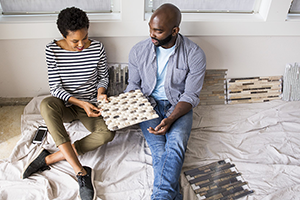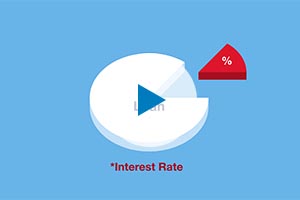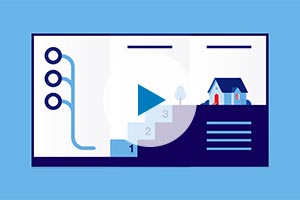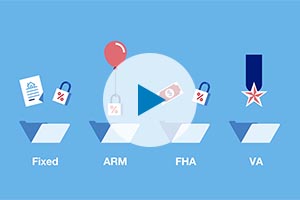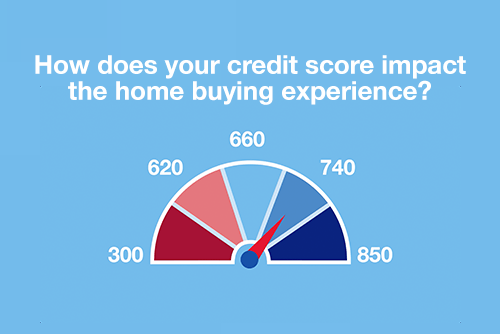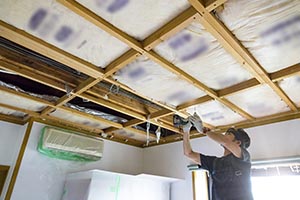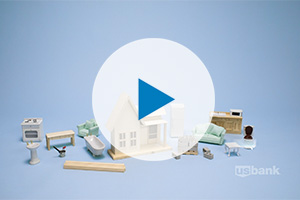If buying a home is something you’re planning on in the future, there are things you can do now that will ensure you feel prepared and secure when you’re ready to take that step.
U.S. Bank Goals Coach Marta Depczynska shares a few tips on how to feel prepared, confident and empowered when it’s time to make that big step. Goals coaching is a free and personalized service for U.S. Bank customers and beyond. U.S. Bank Goals Coaches can help you discover your goals and assist you along the way of reaching your goals.
Discover your “why”
Knowing the “why” behind your goal of buying a home is an important first step in the home-buying process. Do you plan to grow your family or want to live closer to relatives? Are you looking for a shorter commute to work? Do you hope to build equity? Are you just tired of renting? Identifying your “why” is the first step in the goals coaching process.
Knowing your “why” is important for a few reasons:
- It helps you make the right long-term decisions when buying a home.
- It can help keep you committed to the goal and more willing to take the necessary steps to accomplish it. For example, if your “why” is that you want to grow your family, keeping this in mind might make you more committed to fixing credit, paying off debt or following up with a mortgage loan officer. Your “why” can keep you motivated to make the best decision at every step of the process.
Marta shares that when she is coaching someone, identifying the “why” is the first step for any goal. She explains, “Meeting with a goals coach and discussing why owning a home is important to you is a great way to keep yourself motivated and on track. A goals coach can help prepare you and connect you with subject matter experts to make sure you feel confident every step of the way.”
Research the costs
Consider all the costs of homeownership. These can include up-front costs, such as a down payment and monthly mortgage or utilities payments. However, there are other costs associated with homeownership as well.
When renting, often a landlord will take care of a leaky sink or broken water heater, but new homeowners need to be prepared to cover these costs.
Homeownership likely comes with another new responsibility: yard work. Research the costs associated with this, such as a lawn mower, shovels, rakes, fertilizer and more.
When you get a home, will you want to paint, decorate and make it your own? If so, research those costs and plan your home improvement schedule accordingly. The more you research, the more prepared and confident you will be when you buy a home and take on your first project.
Coach Marta says, “Researching costs, preparing for unexpected expenses and practicing good habits will make you feel financially comfortable when it is time to make your purchase.”
Confirm your credit score
Knowing your credit score is an important step when it comes time to buy a home. You can learn more about checking your credit score here.
If you have questions about what your credit score means and how to improve it, a Mortgage Loan Officer or a Client Relationship Consultant could help.
Start saving, budgeting and planning
Even if homebuying is a goal far in the future, it’s never too early to start saving, budgeting and planning. Here are a few tips to get you started:
If owning a home is a dream of yours, take these steps to ensure that you’re confident when it comes time to search for your home and make an offer. Marta says, “There is no better feeling than confidence, especially when it comes to such an exciting purchase like a home.”
Book a free appointment with a goals coach.
Goals Coaches do not:
- Recommend or offer any products or services of U.S. Bank or its affiliates.
- Conduct financial planning or provide investment advice.
- Make recommendations or give advice on matters involving health, including physical, mental, emotional or medical.
U.S. Bank assumes no responsibility for and makes no claims concerning the merit or sufficiency of your goals and does not assume any responsibility or liability for any losses or other outcomes resulting from decisions made by you, actions taken or not taken by you, in connection with U.S. Bank and U.S. Bank Goals Coaching services.
